Hoops Rumors is checking in on the 2024 offseason for all 30 NBA teams, recapping the summer’s free agent signings, trades, draft picks, departures, and more. We’ll take a look at each team’s offseason moves and consider what might still be coming before the regular season begins. Today, we’re focusing on the New Orleans Pelicans.
Free agent signings
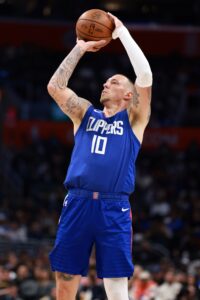 Javonte Green: One year, minimum salary. Signed using minimum salary exception.
Javonte Green: One year, minimum salary. Signed using minimum salary exception.- Daniel Theis: One year, minimum salary. Signed using minimum salary exception.
- Matt Ryan: One year, minimum salary. Non-guaranteed. Signed using minimum salary exception.
Trades
- Acquired the draft rights to Antonio Reeves (No. 47 pick) from the Magic in exchange for the right to swap second-round picks in 2030 and 2031.
- Acquired the Bulls’ 2027 second-round pick (top-50 protected) from the Wizards in exchange for Jonas Valanciunas (sign-and-trade).
- Acquired Dejounte Murray from the Hawks in exchange for Larry Nance Jr., Dyson Daniels, E.J. Liddell, Cody Zeller (sign-and-trade), the Lakers’ 2025 first-round pick, and either the Pelicans’ or Bucks’ 2027 first-round pick (whichever is least favorable; top-four protected).
Draft picks
- 1-21: Yves Missi
- Signed to rookie scale contract (four years, $15,654,827).
- 2-47: Antonio Reeves
- Signed to three-year, minimum-salary contract ($5,408,801). First year guaranteed. Second year non-guaranteed. Third year non-guaranteed team option.
Two-way signings
Departed/unsigned free agents
Other moves
- Exercised Jeremiah Robinson-Earl‘s 2024/25 team option ($2,196,970).
- Exercised Jose Alvarado‘s 2024/25 team option ($1,988,598).
- Signed draft-and-stash prospect Karlo Matkovic to a three-year, $5,658,801 contract. First two years guaranteed. Third-year team option.
- Claimed Trey Jemison (two-way) off waivers.
Salary cap situation
- Operating over the cap ($140.6MM), over the luxury tax line ($170.8MM), and below the first tax apron ($178.1MM).
- Carrying approximately $172.4MM in salary.
- Hard-capped at $178,132,000.
- Full mid-level, bi-annual exceptions available.
- Two traded player exceptions available (largest worth $9,900,000).
The offseason so far
The Pelicans entered the summer with three key items on their to-do list — upgrading at point guard, finding a starting center, and resolving the Brandon Ingram situation.
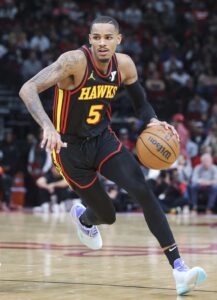 Of those three goals, the Pelicans clearly achieved one of them, striking a deal with the Hawks to acquire Dejounte Murray to fortify their backcourt. The cost – including a rotation big man (Larry Nance Jr.), a former lottery pick with untapped potential (Dyson Daniels), and two future first-round picks – wasn’t cheap, but Murray should bring an intriguing new element to a Pelicans team that has relied on CJ McCollum to run the point in recent years.
Of those three goals, the Pelicans clearly achieved one of them, striking a deal with the Hawks to acquire Dejounte Murray to fortify their backcourt. The cost – including a rotation big man (Larry Nance Jr.), a former lottery pick with untapped potential (Dyson Daniels), and two future first-round picks – wasn’t cheap, but Murray should bring an intriguing new element to a Pelicans team that has relied on CJ McCollum to run the point in recent years.
While McCollum did OK in that role, Murray is more of a natural play-maker whose presence will allow McCollum to operate more off the ball, or perhaps even to run the second unit. And while Murray’s defensive numbers dropped off in Atlanta, he has an All-Defensive nod on his résumé and has the tools to bounce back on that side of the ball, upgrading the Pelicans’ perimeter defense.
The other two top items on the Pelicans’ offseason checklist remain a work in progress.
New Orleans is unwilling to offer Ingram a long-term, maximum-salary extension as he enters a contract year, and has rising sharpshooter Trey Murphy in the wings waiting to step into Ingram’s starting role. The team also lost its top two centers – Nance and Jonas Valanciunas – this offseason, with Valanciunas leaving for Washington in free agency.
The two-in-one solution to those issues would be to trade Ingram for a starting-caliber center, but New Orleans has explored that path with no success so far, as targets like Jarrett Allen, Nic Claxton, and Wendell Carter remained with their respective teams this summer. As a result, the cap-strapped Pelicans had to turn to free agency for a temporary solution at the five, bringing in veteran big man Daniel Theis on a minimum-salary deal.
Theis is better suited to be a backup, but he’s the best option the Pelicans have at center in the short term, with newly added rookies Yves Missi and Karlo Matkovic unlikely to play major roles right away and Jeremiah Robinson-Earl seemingly lacking starter upside. In a perfect world, Missi would enjoy a Dereck Lively-esque debut season and pair with Theis to form a reliable platoon in the middle. But it’s more likely that center will remain an area of need for New Orleans into the season.
As for Ingram, the Pelicans are said to be open to discussing an extension below the maximum, but with Zion Williamson occupying one forward spot and Murphy and Herbert Jones having earned significant roles, investing heavily in Ingram may not be the preferred path for the organization. As talented a scorer as he is, the former No. 2 overall pick isn’t an elite three-point shooter or defender, making him a somewhat awkward fit next to Williamson, who shares those traits.
Of course, those are the same reasons why another team might be reluctant to trade for Ingram and commit to paying his next contract, which hurts the Pelicans’ ability to extract a ton of value for him on the trade market. Ingram’s presence also gives New Orleans some high-level insurance in the event of a Williamson injury, which hasn’t exactly been a rare occurrence in recent years. It’ll be fascinating to see whether a trade or a new contract with New Orleans is the next step for the 2020 All-Star.
Up next
As detailed above, Ingram’s future with the franchise remains up in the air, but it’s possible no resolution comes before opening night. The forward will remain extension-eligible throughout the season, all the way up until June 30, 2025, and the Pelicans could trade him at anytime up until February’s deadline — or even in a sign-and-trade deal next summer. So while it would be nice to have an answer sooner rather than later, the two sides can afford to enter the regular season without an extension or trade.
The Pelicans have two more extension candidates with whom they’ll likely explore new deals before the season begins. Like Ingram, Jose Alvarado will be extension-eligible all year, but the team faces an October 21 deadline in its talks with Murphy. If Murphy hasn’t signed a rookie scale extension by that time, he’ll become a restricted free agent next July.
Murphy, 24, hasn’t made fewer than 38.0% of his three-point attempts in any of his three NBA seasons and has increased his shot volume every year, from 3.0 attempts per game as a rookie to 7.8 last season.
A player who can shoot like that and hold his own on defense is an extremely valuable asset and that will be reflected in his next contract. RJ Barrett, Jordan Poole, Tyler Herro, Jaden McDaniels, and Devin Vassell all received four- or five-year rookie scale extensions ranging from $107-135MM during the 2022 and 2023 offseasons. I expect Murphy to seek a deal at least in that neighborhood.
The cost for Alvarado shouldn’t be as high, but he’ll certainly be due a raise on his current minimum-salary contract after having established himself as a reliable rotation player for the Pelicans. The 26-year-old would be an unrestricted free agent next summer, so I expect New Orleans will make an effort to stop him from reaching the open market, but it remains to be seen how high the front office will be comfortable going for a reserve like Alvarado.
The Pelicans are currently carrying 15 players on standard contracts on three on two-way deals, so barring a preseason trade involving Ingram and/or a center, the roster looks pretty close to being set for the regular season.
We’ll see whether 15th man Matt Ryan opens the season on the roster or is waived for financial reasons. It’s also possible New Orleans will make a change or two to its two-way players — Malcolm Hill, whose two-way deal carried over from 2023/24, didn’t appear in a single game for the Pelicans last season, so it’s unclear whether he’s in their plans going forward. For what it’s worth, he had a strong year in the G League.
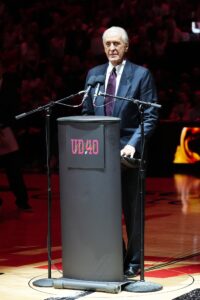
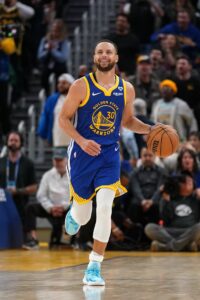 11:28am: Two-time MVP
11:28am: Two-time MVP 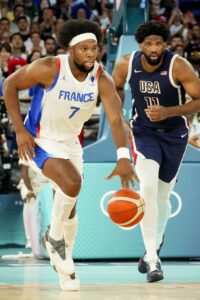 The 76ers did not disclose the terms of Yabusele’s contract, but
The 76ers did not disclose the terms of Yabusele’s contract, but 
 Of those three goals, the Pelicans clearly achieved one of them, striking a deal with the Hawks to acquire
Of those three goals, the Pelicans clearly achieved one of them, striking a deal with the Hawks to acquire